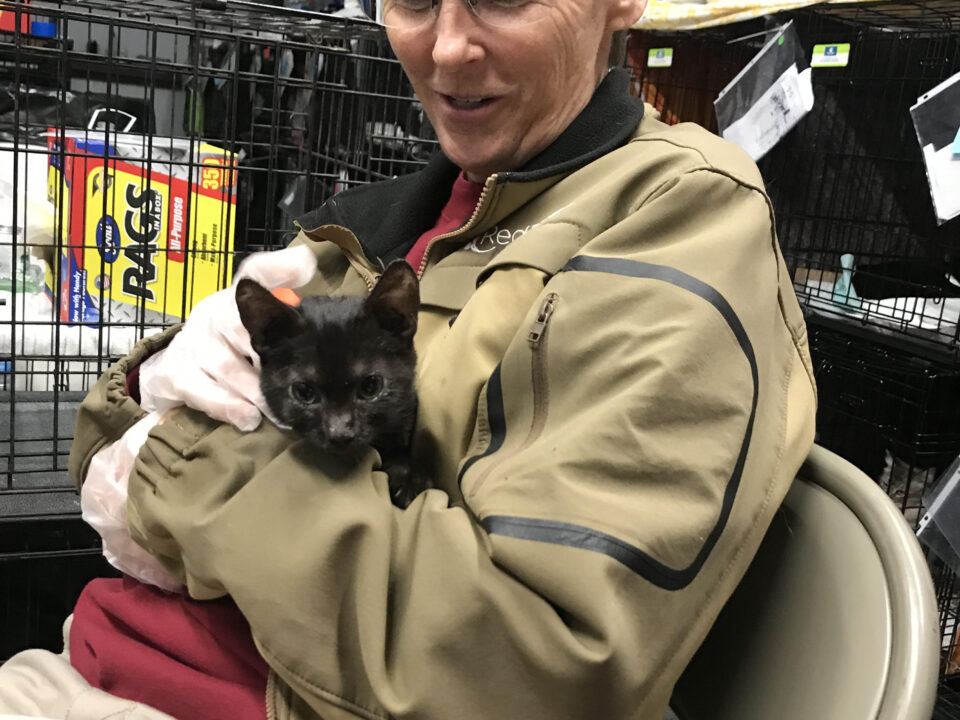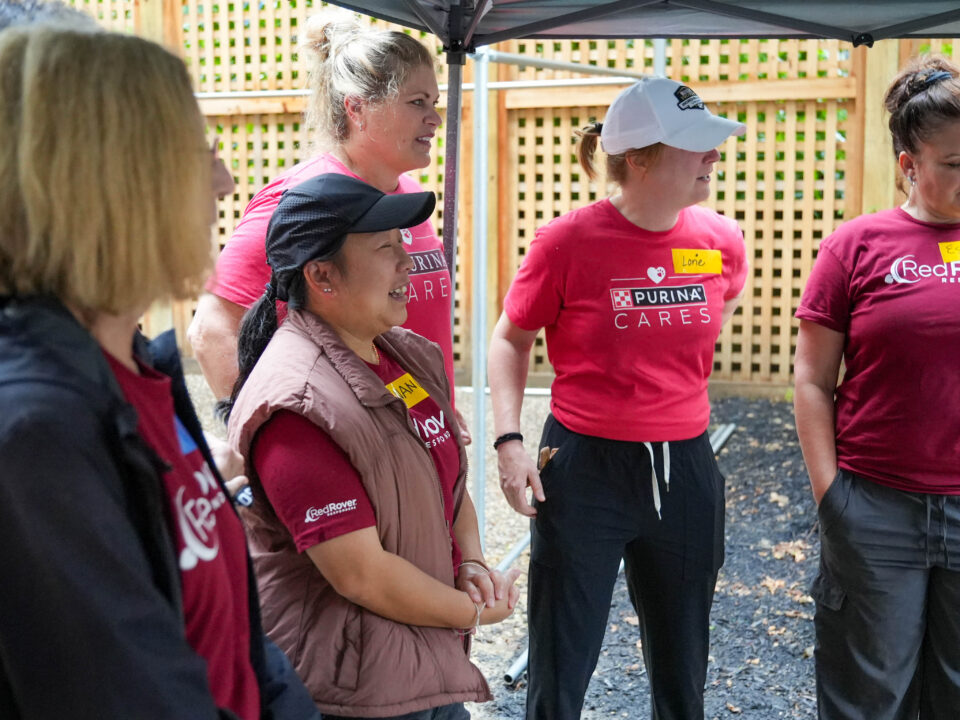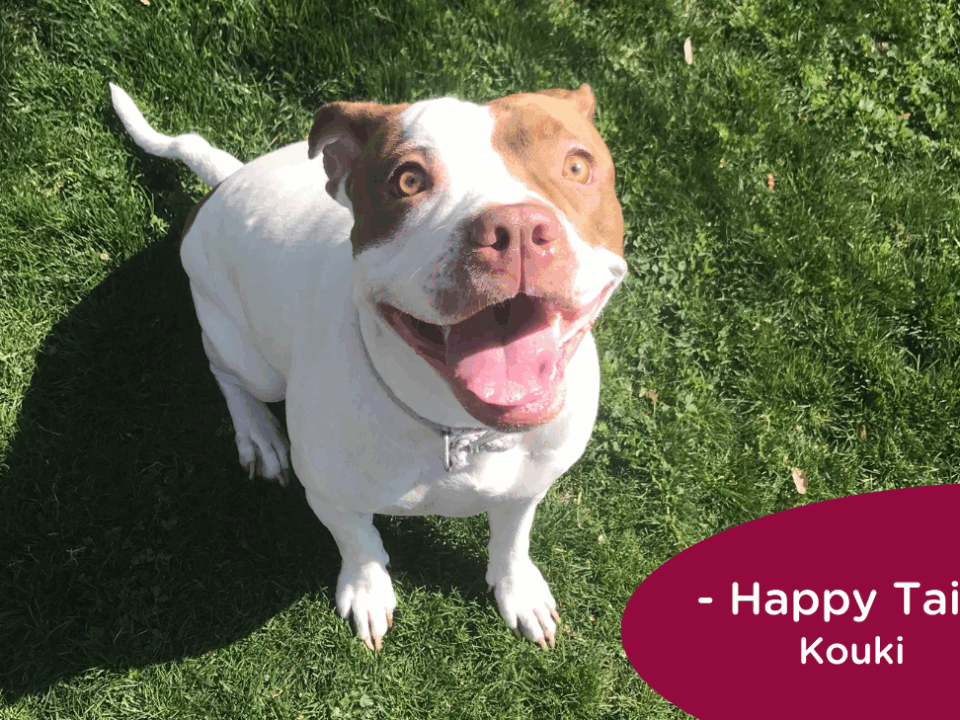Unchaining and Wellness on the Navajo Nation
July 2nd, 2024
By Devon Krusko, Field Services and Community Programs Manager
Content warning: This story contains a brief reference to gun violence against animals.
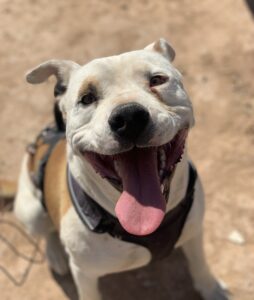 In June, our RedRover Responders team headed back to Tuba City, Arizona on the Navajo Nation. Returning for our fourth deployment since our partnership began in June 2022 with our friends at the Parker Project, this deployment had us back helping with their monthly spay/neuter, wellness, and vaccine clinic along with two days of building safe enclosures for dogs that live outdoors.
In June, our RedRover Responders team headed back to Tuba City, Arizona on the Navajo Nation. Returning for our fourth deployment since our partnership began in June 2022 with our friends at the Parker Project, this deployment had us back helping with their monthly spay/neuter, wellness, and vaccine clinic along with two days of building safe enclosures for dogs that live outdoors.
Eight volunteers joined this deployment, some returning and others experiencing the culture and work for the first time. Though this trip coincided with a heat wave, making our work outside difficult with very long days, the families and animals we helped consistently remind us of our purpose. Over 600 animals received veterinary care, and we built new kennels for 12 dogs!
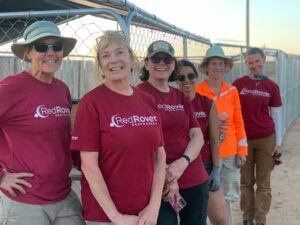 The overpopulation of animals in this area is complicated. The Navajo Nation is the largest, geographically, of the Native American reservations – larger than Massachusetts, New Hampshire, and Vermont combined. Many homes do not have running water or electricity. If folks have access to transportation, services may be very far. Where there aren’t resources for people, there are also limited resources for pets. With just three veterinarians in this area and over 250,000 estimated dogs (cat numbers are unknown), the need is insurmountable. Spay and neuter services, and wellness care are costly if accessible, and families and the community are caring for many dogs, including ones that they don’t own. Groups like the Parker Project provide both free and low-cost services and travel to different areas of the reservation.
The overpopulation of animals in this area is complicated. The Navajo Nation is the largest, geographically, of the Native American reservations – larger than Massachusetts, New Hampshire, and Vermont combined. Many homes do not have running water or electricity. If folks have access to transportation, services may be very far. Where there aren’t resources for people, there are also limited resources for pets. With just three veterinarians in this area and over 250,000 estimated dogs (cat numbers are unknown), the need is insurmountable. Spay and neuter services, and wellness care are costly if accessible, and families and the community are caring for many dogs, including ones that they don’t own. Groups like the Parker Project provide both free and low-cost services and travel to different areas of the reservation.
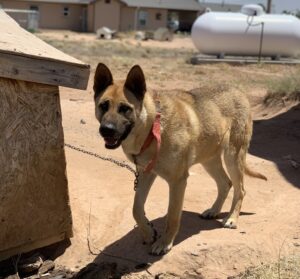 Life for community dogs can be dangerous. The overpopulation of homeless dogs is very layered, steeped in generations of systemic challenges and a lack of resources. Families are caring for many dogs, including ones that are dropped off or show up. There are limited opportunities for rescue and adoption for these dogs and it’s dangerous for them to be running loose on the reservation: Groups of dogs fight over resources, and it’s hard to be the new pup on the block. Dogs are left to survive being injured, whether by other dogs or by vehicles. They’re often scavenging for food and water, and it’s not uncommon for them to be purposefully shot at or poisoned. Sadly, packs of dogs have caused injury and death to people and livestock, which can make for a complicated relationship with the community.
Life for community dogs can be dangerous. The overpopulation of homeless dogs is very layered, steeped in generations of systemic challenges and a lack of resources. Families are caring for many dogs, including ones that are dropped off or show up. There are limited opportunities for rescue and adoption for these dogs and it’s dangerous for them to be running loose on the reservation: Groups of dogs fight over resources, and it’s hard to be the new pup on the block. Dogs are left to survive being injured, whether by other dogs or by vehicles. They’re often scavenging for food and water, and it’s not uncommon for them to be purposefully shot at or poisoned. Sadly, packs of dogs have caused injury and death to people and livestock, which can make for a complicated relationship with the community.
Often, the safest and most affordable way to keep a family dog safe is to have them chained or tethered, which is where our kennel building program assists in improving their quality of life, while keeping them safely contained. Our Community Program initiative’s Unchaining goal helps to provide safe fencing at no cost to families, who very much love and care for their dogs!
Like our previous trips, we were welcomed by families filled with immense gratitude and kindness, and we look forward to returning in the fall to help keep pets with the people who love them!

